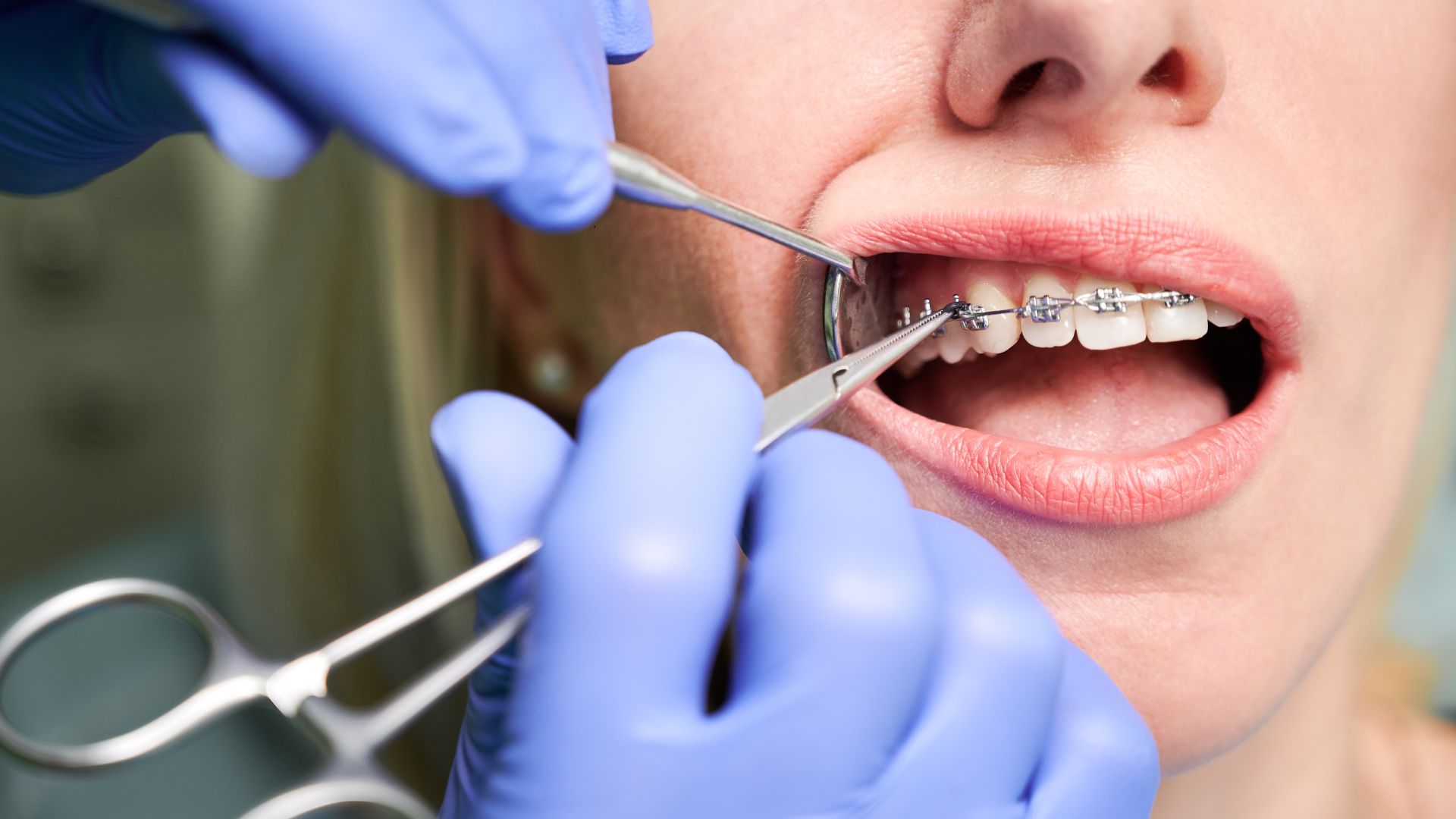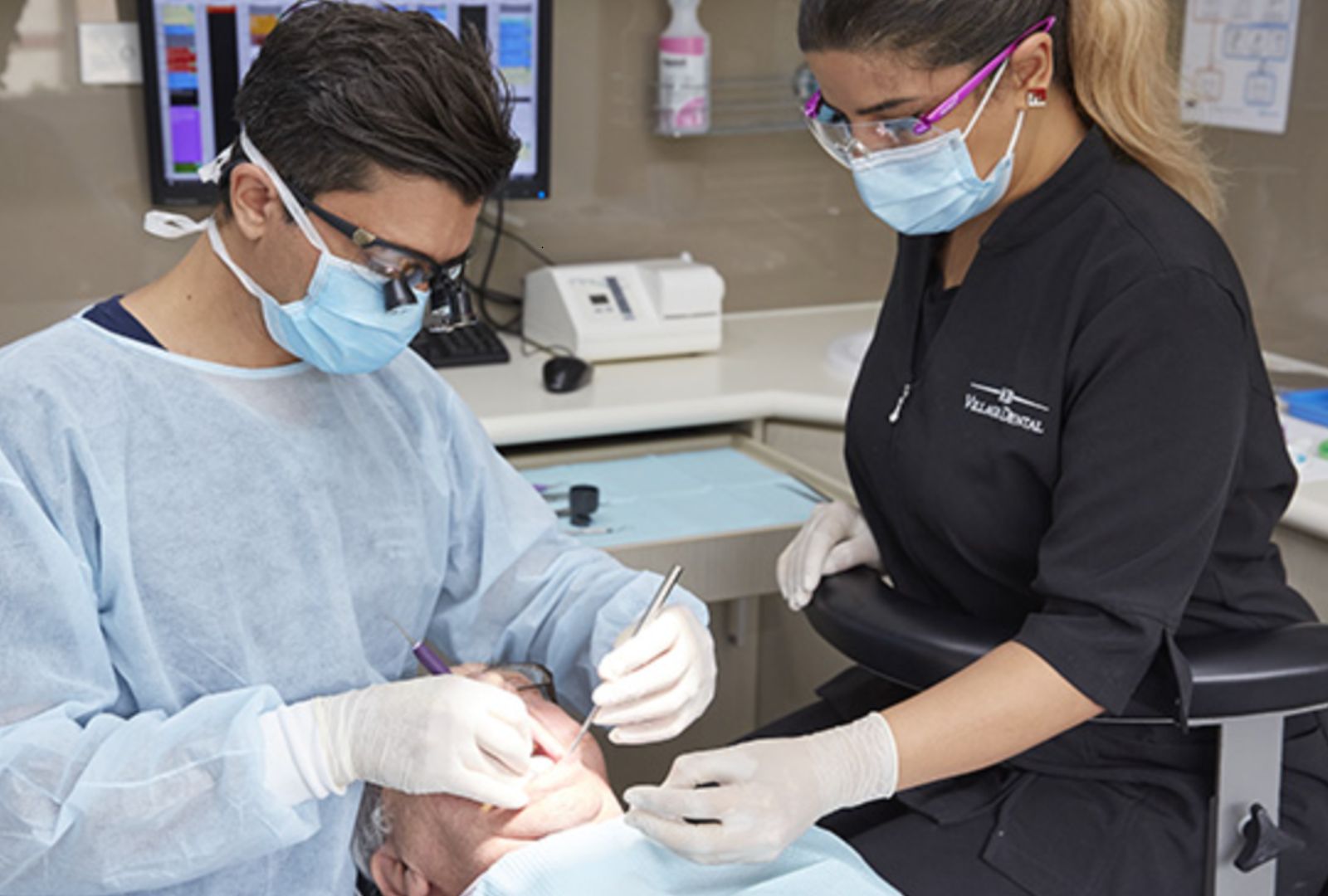What is Considered a Dental Emergency?
It’s late on a Friday night, and you find yourself hit with a sudden throbbing toothache that won’t let you sleep. Do you wait until Monday morning, or should you rush to the dentist ASAP?
Understanding what qualifies as a dental emergency can save you pain, unnecessary trips and excess costs.
What is a Dental Emergency?
Let’s face it, tooth pain is brutal, and when you get hit by a toothache, it always feels like an emergency. However, not all tooth pain requires immediate attention.
A dental emergency is any situation where urgent care is necessary to prevent further damage, stop severe pain, bleeding, or infection, or address issues that could lead to serious complications. This could include traumatic injuries like a knocked-out tooth, intense pain from an abscess, uncontrollable bleeding or swelling that affects breathing.

Common Types of Dental Emergencies
Understanding different types of dental emergencies will help you decide on the best course of action once they occur
1. Broken or Knocked-Out Teeth
We all know accidents happen. Whether through sports, falls or unexpected impacts, a broken or knocked-out tooth is a common dental emergency that requires immediate care. If your tooth is knocked out, the quicker you seek help, the higher the chances of saving your pearly white. Rinse the tooth carefully, keep it moist in either milk or saliva and get yourself to the dentist as soon as possible. And remember, wearing a mouthguard when you take to the sports field is one of the best ways to minimise these risks.
2. Severe Toothaches
Tooth pain that becomes unbearable is usually a sign of an underlying issue, such as serious tooth decay, infection or trauma. While a toothache may not seem urgent at first, if the pain becomes sharp, throbbing, and persistent, it may indicate a severe problem that needs emergency treatment. Severe toothaches can be the result of an exposed nerve from a crack in a tooth, a cavity close to the tooth’s pulp or an abscess, all of which lead to further complications if left untreated.
3. Abscesses and Infections
A dental abscess is a pocket of pus caused by a bacterial infection. Usually occurring at the root of a tooth or in the gum, abscesses require urgent treatment to stop the infection from spreading. Symptoms to look for include severe pain, fever and a foul taste in your mouth. Abscesses can quickly become serious if left untreated, leading to serious health complications, including sepsis. Immediate dental care is essential for drainage and infection control.
4. Excessive Bleeding From the Gums
While bleeding gums are often a sign of gingivitis (gum disease), excessive and uncontrollable bleeding signals a more severe problem. If you’re experiencing non-stop bleeding, whether spontaneously without cause or after an injury, it’s critical to seek emergency care. Excessive bleeding is often a sign of periodontal disease, trauma and a system issue that warrants further investigation.
5. Lost Fillings or Crowns
Losing a filling or crown can be more than an inconvenience; it can expose the affected area to further damage and increase the risk of infection. If a filling or crown falls out, book an appointment with an emergency dentist, keep the area clean and avoid chewing on the affected side in the meantime.
6. Soft Tissue Injuries
Soft tissue injuries, like those affecting your gums, tongue, cheek or lips, are usually the result of bites, falls and accidents. These injuries range from minor cuts to serious lacerations that may bleed heavily or swell. While these injuries might seem alarming, not all require emergency care. If the bleeding is minimal and eases quickly, rinsing with salt water and applying a cold compress may be all that is needed. If, however, the bleeding is heavy and continues to flow or there is a large amount of swelling, it is time to book an appointment with a professional.
7. Orthodontic Emergencies
If you wear braces, Invisalign or other orthodontic appliances, you know that things can sometimes go wrong. Wires can break, brackets can pop loose, or your Invisalign tray might not fit properly, all of which can cause discomfort and even injury to the jaw and gums. It’s important to sort these issues out quickly—damaged orthodontic appliances aren’t just annoying; they can slow down your progress.

When Should You See a Dentist Immediately?
Sometimes it can be hard to know if a dental issue really needs urgent attention or if it’s just a bit of discomfort that will eventually pass.
If you’re suffering from severe pain that won’t go away, swelling around your face and gums, excessive bleeding or a knocked-out tooth, it’s time to act and get yourself to a dentist, or if that’s not possible, the emergency room. These are all clear signs that you’re dealing with an emergency and shouldn’t wait for a regular appointment. Emergency dentistry is all about tackling time-sensitive issues to prevent further complications.
What Happens if You Ignore a Dental Emergency?
Ignoring a dental emergency can have serious consequences, from worsening infections to severe pain to irreversible damage to your smile. Untreated abscesses, for example, can lead to systemic infections that spread bacteria through the bloodstream and put your health at serious risk. Similarly, ignoring a knocked-out tooth may mean it can’t be saved, leading to the need for more extensive dental work like implants and bridges.
How to Manage Dental Pain Until You See a Dentist
While you are waiting for your dental appointment, there are several things that can help you to temporarily manage discomfort and pain. Over-the-counter pain relievers like ibuprofen can ease inflammation and help with pain. Applying a cold compress to the cheek is another tried and true method for numbing the affected area and reducing swelling.
Don’t Delay, Book Your Emergency Appointment with KB Village Dental
In any dental emergency, timely intervention plays a large role in ensuring the best outcome. Whether it’s an ongoing, severe toothache or tooth loss from an accident, it’s important to consult with a professional as soon as possible.
We can help with your dental emergency at KB Village Dental today. Our emergency dentists are here to ensure you receive the care you need without delay. Contact us to book your appointment, or call us on (02) 9964 9166.

